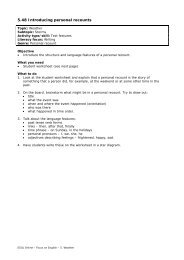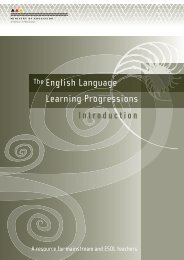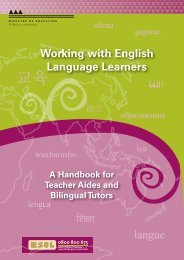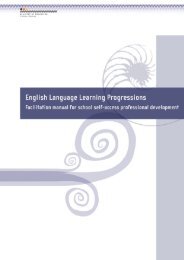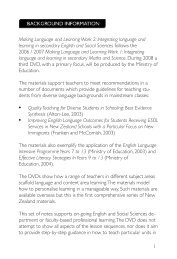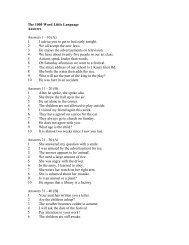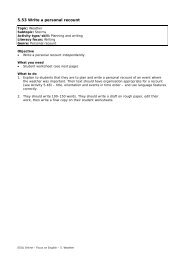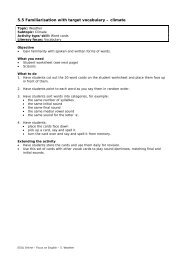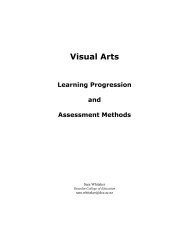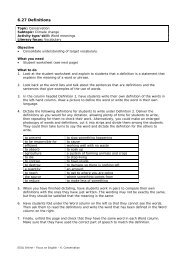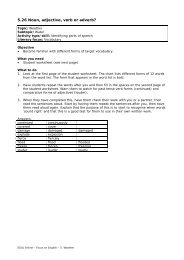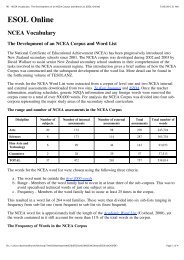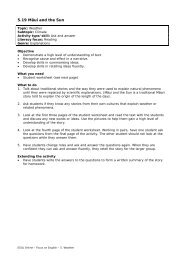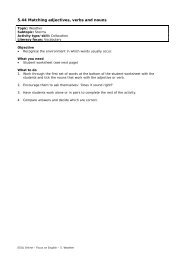ELLP Years1-4 - ESOL - Literacy Online - Te Kete Ipurangi
ELLP Years1-4 - ESOL - Literacy Online - Te Kete Ipurangi
ELLP Years1-4 - ESOL - Literacy Online - Te Kete Ipurangi
You also want an ePaper? Increase the reach of your titles
YUMPU automatically turns print PDFs into web optimized ePapers that Google loves.
Stage 1D/2A<br />
The following sample text is at Stage 1D/2A because the ideas are presented in clear stages and it<br />
contains expanded sentences.<br />
<strong>Te</strong>xts at Stage 1D/2A tend to have the following characteristics:<br />
– around three or more sentences per page;<br />
– little repetition;<br />
– support from illustrations;<br />
– use of high-frequency words and some lower-frequency, technical, or topic words;<br />
– use of simple, compound, and some complex sentences;<br />
– sentences that are expanded with prepositional phrases or other structures.<br />
Other examples of texts at Stage 1D/2A include those found at the fluency levels of the colour wheel<br />
in the Ready to Read series books and their commercially published equivalents.<br />
Sample text<br />
Extract: Aiono-Iosefa, Sarona (2003). White Sunday in Sāmoa. Ready to Read<br />
series. Wellington: Learning Media, pages 4–5.<br />
Topic: A religious celebration important in Sāmoan culture<br />
<strong>Te</strong>xt type: Explanation and recount<br />
Audience: Younger readers – the text is simply written, from a child’s<br />
perspective<br />
Topic development<br />
The topic develops through preparation<br />
for the event. The present preparation<br />
and the future event (White Sunday) are<br />
interwoven.<br />
Language structures<br />
The sentences are mostly simple clauses<br />
(subject–verb[–object]) or compound<br />
sentences (two simple clauses joined<br />
with a conjunction). There is a variety<br />
of sentence beginnings and there is no<br />
repetition of whole or part sentences.<br />
White Sunday in Samoa -<br />
White Sunday will be a very special day.<br />
The children all have a Bible verse to say,<br />
and they will sing hymns together.<br />
They must practise hard.<br />
Tafu practises his Bible verse.<br />
It takes ages for everyone<br />
to have their turn.<br />
Tafu falls asleep!<br />
So does his best friend.<br />
Many of the verb phrases are in the simple<br />
present – practises, falls asleep. Some are<br />
in the future – will be, will sing. There is<br />
also use of modal verbs that imply obligation – must practise.<br />
The noun phrases are mainly simple, consisting of a single noun or a determiner and a noun – Tafu,<br />
The children. Some are more complex, consisting of a determiner, an intensifier, an adjective, and<br />
30



